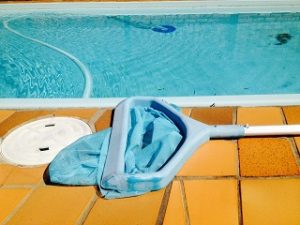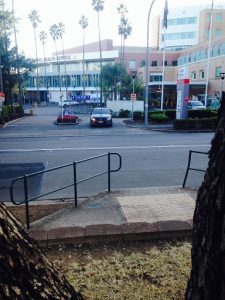
The public health unit of South Western Sydney Local Health District (SWSLHD ) are advising anyone who has had diarrhoea not to swim in pools until at least two weeks after they have fully recovered.
The advice comes in the wake of an increase in the number of cases of cryptosporidiosis notified to the public health unit of SWSLHD.
There have been 71 cases of cryptosporidiosis notified to the public health unit this year (up to March 12).
The highest rates of infection are in children under five years of age, says Dr Madhumati Chatterji, the acting director of the public health unit.
This is the highest year to date figure since 2009 when there was a large state wide outbreak with more than 1,141 notified cases.
“Cryptosporidiosis is a diarrhoeal disease caused by a parasitic infection of the intestine,’’ Dr Chatterji said.
“The most common symptoms include diarrhoea, stomach cramps and sometimes fever, nausea and vomiting.
“There is no specific treatment for the condition and symptoms may last a few weeks in some people”, Dr Chatterji said.
Among the cases, a range of possible risk factors have been reported including swimming in pools, person to person contact, particularly in families and among small children (for example in child care centres) and contact with animals.
In previous studies, drinking untreated water has also been identified as a risk factor.
To avoid getting infected with the parasite, the public health unit advises people to:
Always wash their hands thoroughly for 10 seconds with soap and running water after using the toilet, changing nappies, or handling animals or their manure;
Avoid swallowing or putting pool or spa water in your mouth; and
Not drink untreated water (from rivers, creeks, dams, surf). Bringing water to a rolling boil will kill these parasites.
To keep swimming pools free from contamination, it is vital that people do not swim in a pool or enter a spa until at least two weeks after they have completely recovered from a diarrhoeal illness.
The public health unit recommends parents do the following things to avoid pool contamination:
Children who are not toilet trained should wear swimming nappies or waterproof tight fitting pants over swimmers;
Change nappies in a bathroom and not at the poolside as germs can spread to surfaces or objects in and around the pool and spread illness; if a dedicated nappy change table is used, the surfaces should be sanitised after use so as not to be a potential source of infection for the next child
Wash their hands with soap and water after changing a child’s nappy.
Anyone concerned about their symptoms should contact their GP.
The NSW Health Fact Sheet on cryptosporidiosis can be found online here.

